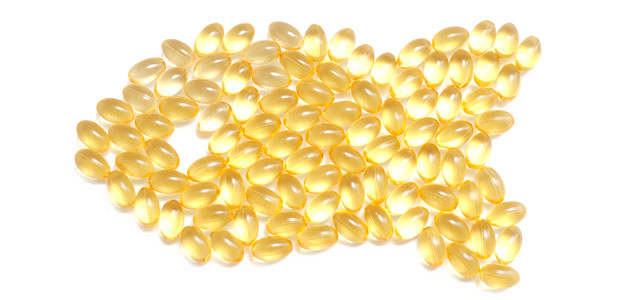Advertisement
Choosing a Fish Oil Supplement
It’s well recognized that omega-3 fatty acids appear to reduce the risk of cardiovascular disease. These essential fatty acids are a type of unsaturated fatty acid thought to reduce inflammation, which can damage blood vessels and can even lead to cardiovascular disease. They might also reduce triglycerides and lower blood pressure. Sources of omega-3s Essential … Continued

It’s well recognized that omega-3 fatty acids appear to reduce the risk of cardiovascular disease. These essential fatty acids are a type of unsaturated fatty acid thought to reduce inflammation, which can damage blood vessels and can even lead to cardiovascular disease. They might also reduce triglycerides and lower blood pressure.
Sources of omega-3s
Essential fatty acids aren’t made by the body, so they must be obtained through food or supplements. A good source of omega-3s is fatty fish such as salmon, sardines, herring, halibut, cod, and tuna. Health professionals recommend that people eat this type of fish at least twice a week.
Non-fish food sources of omega-3 fatty acids include flaxseed, flaxseed oil, walnuts, soybeans, and soybean oil. However, research suggests that omega-3s from fish sources may be easier for the body to absorb than those from plant-based sources, as plant sources of omega-3s need to undergo an extra step in the body.
Fish oil supplements also provide a convenient way to increase your omega-3 intake.
How to choose a fish oil supplement
Many people are concerned about ingesting too much mercury that’s found in fish. Resulting from pollution, mercury can accumulate in oceans. From there, it ends up in the food that fish eat. As a result, mercury builds up in their bodies.
Mercury poses the greatest risk to children and unborn babies. Children and women who are pregnant, trying to get conceive, or nursing should not eat fish that’s likely to be highly contaminated.
However, health experts maintain that the benefits of eating fish outweigh the effects of small amounts of mercury. Plus, the amount of toxins depends on the type of fish.
Big, predatory fish that are higher up on the food chain tend to have higher levels of mercury than smaller fish. Species such as shark, tilefish (also known as golden snapper and golden bass), swordfish, and king mackerel eat the smaller fish, gaining higher concentrations of toxins. Some large fish such as tuna may contain other toxins, such as dioxins and polychlorinated biphenyls (PCBs).
When selecting a fish oil supplement, choose one sourced from fish with high amounts of omega-3s but low amounts of contaminants. Good examples include small fish such as anchovies or sardines, or wild salmon (which is thought to contain less mercury than farmed salmon). High quality fish oil supplements contain little or no contaminants such as mercury.





